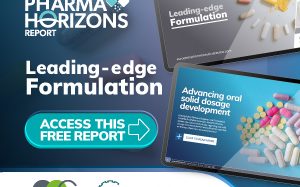European regulators prepare for AI in pharma
Posted: 19 December 2023 | Caroline Peachey (European Pharmaceutical Review) | No comments yet
A coordinated workplan, which runs to 2028 will help European regulators embrace opportunities for artificial intelligence.


The European Medicines Agency (EMA) and the Heads of Medicines Agencies (HMAs) have published a plan, which sets out a “collaborative and coordinated strategy” to maximise the benefits of artificial intelligence in regulation.
The workplan, which runs until 2028, will help the European medicines regulatory network (EMRN) embrace the opportunities of AI for personal productivity, automating processes and systems, increasing insights into data and supporting more robust decision-making to benefit public and animal health.
The plan was prepared by the Big Data Steering Group (BDSG), a joint initiative between HMA and EMA. The goal of this steering group is to ensure the EMRN “remains at the forefront in benefiting from AI in medicines regulation.”
The document was adopted by EMA’s Management Board at its December meeting.
Four key dimensions of the AI workplan
The first version of the BDSG multi-annual workplan focuses on four areas to facilitate the development and use of responsible and beneficial AI.
- Guidance, policy and product support: Actions focus on continuous support to products in development as well as the development and evaluation of appropriate guidance for the use of AI in the lifecycle of a medicine. Work has already begun with the ongoing public consultation on the AI reflection paper, open until the end of 2023. Preparations to support the implementation of the EU AI Act will start in 2024.
- AI tools and technology: The aim is to identify and provide frameworks to use AI tools to increase efficiency, enhance understanding and analysis of data and support decision-making. Full compliance with data protection legislation will be ensured.
- Collaboration and training: Initiatives are designed to continuously develop capacity and capability of the network, partners and stakeholders to keep ahead of the evolving field of AI.
- Experimentation The workplan acknowledges the fundamental role of experimentation in accelerating learning and gaining new insights. Several actions are proposed to ensure a structured approach to experimentation across the network
Given the fast evolution of AI technology, including the ethical and policy aspects related to it, BDSG intends to regularly update the workplan.
AI-supported spectroscopy delivers superior pharmaceutical packaging QC
Related topics
Artificial Intelligence, Big Data, Data integrity, Lab Automation, Regulation & Legislation, Research & Development (R&D)
Related organisations
European Medicines Agency (EMA), Heads of Medicines Agencies (HMA)









